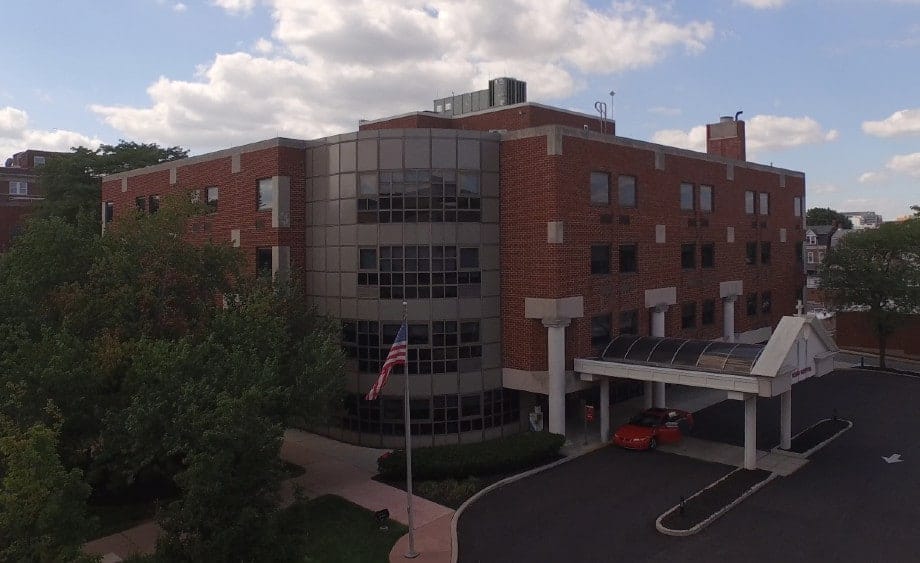Why Choose Us
Learn more about Good Shepherd Rehabilitation Hospital, a destination for recovery for stroke, brain injury, spinal cord injury and complex medical rehabilitation.

ALLENTOWN, PA — Good Shepherd Rehabilitation Network has secured a prestigious National Institutes of Health (NIH) research grant to study the complex relationship between stroke, sleep and rehabilitation.
The $500,000 NIH grant will fund Good Shepherd’s portion of a five-year study — “SLEEPR Study: The Sleep Effects on Post-Stroke Rehabilitation” — that also marks a research partnership between Good Shepherd and SUNY Upstate Medical University in Syracuse, New York. (SLEEPR is short for SLEep Effects on Post-stroke Rehabilitation)
Each year, stroke impacts more than 795,000 people in the United States, according to the CDC. While poor sleep can have negative effects on otherwise healthy people, Good Shepherd researchers plan to examine what impact sleep disorders, such as insomnia and restless leg syndrome, have on patients recovering from stroke.
NIH’s R01 grant, which undergoes a rigorous review process prior to being awarded, is a significant achievement for Good Shepherd and its research efforts, says Executive Director Frank Hyland, MSPT.
“We are clinical specialists at Good Shepherd, and through research like this, we can bring innovative solutions to our patients,” Hyland says. “For example, what can we do to make the outcomes better for people who have sleep disorders and suffer stroke? If you’re tired, are you less likely to go out of your house?”
The study, which began enrolling participants this month, focuses on inpatient rehabilitation stroke patients admitted to the Good Shepherd Rehabilitation Hospital in Allentown. Interested patients must meet study criteria to participate, including no diagnosis of sleep apnea.
All told, 200 participants will be enrolled between Good Shepherd and SUNY.
Researchers will collect data on stroke inpatients when they are 15, 60 and 90 days post-stroke through an activity monitor, sleep watch and GPS device. The study will analyze data showing how well patients sleep, their mobility and activity levels and their community participation (i.e., do they leave home, go to the park or participate in other daily activities). Researchers will not collect exact location data as part of the study.
“If we can understand the effect of sleep disorders on recovery following stroke, we may be able to design future treatments that improve rehabilitation outcomes,” says Emily Lyter, PT, DPT, Good Shepherd research coordinator.
George D. Fulk, PT, PhD, FAPTA, chair and professor in the Department of Physical Therapy Education, says SUNY Upstate Medical University partnered with Good Shepherd on the NIH-funded study for a variety of reasons.
“First of all is Good Shepherd’s dedication to patients and outstanding outcomes for people with stroke undergoing rehabilitation. We have successfully partnered together on previous research projects, and Good Shepherd is at the forefront of applying the latest rehabilitation evidence to practice,” Fulk says. “These reasons, coupled with their outstanding team of physical therapists and other rehabilitation professionals, make this a strong partnership that will successfully accomplish our study aims. We also hope that this study will lead to further research together to explore the effectiveness of combining sleep and rehabilitation interventions to promote optimal outcomes for people that have experienced a stroke.”
Mike Walbert, Marketing & Communications Specialist
610-776-3329
mwalbert@gsrh.org
Good Shepherd Rehabilitation Network is a nationally recognized, not-for-profit rehabilitation leader committed to transforming lives through expertise, innovation and compassion.
Good Shepherd provides an exceptional patient experience for all ages and stages by developing leading-edge solutions, often for complex medical situations; serving as a test site for the newest rehabilitation technologies; and inspiring hope in all we do.
Good Shepherd traces its pioneering spirit for innovation and compassionate care to its founding family, The Rev. John “Papa” Raker and D. Estella “Mama” Raker. In 1908, the Rakers opened the Good Shepherd Home to care for children with disabilities and senior citizens, filling an unmet community need — and setting the stage for Good Shepherd’s continued growth as a rehabilitation groundbreaker.
Headquartered in Allentown, Pennsylvania, Good Shepherd also partners with Penn Medicine to provide rehabilitation and specialty services in the greater Philadelphia area and New Jersey through Good Shepherd Penn Partners.